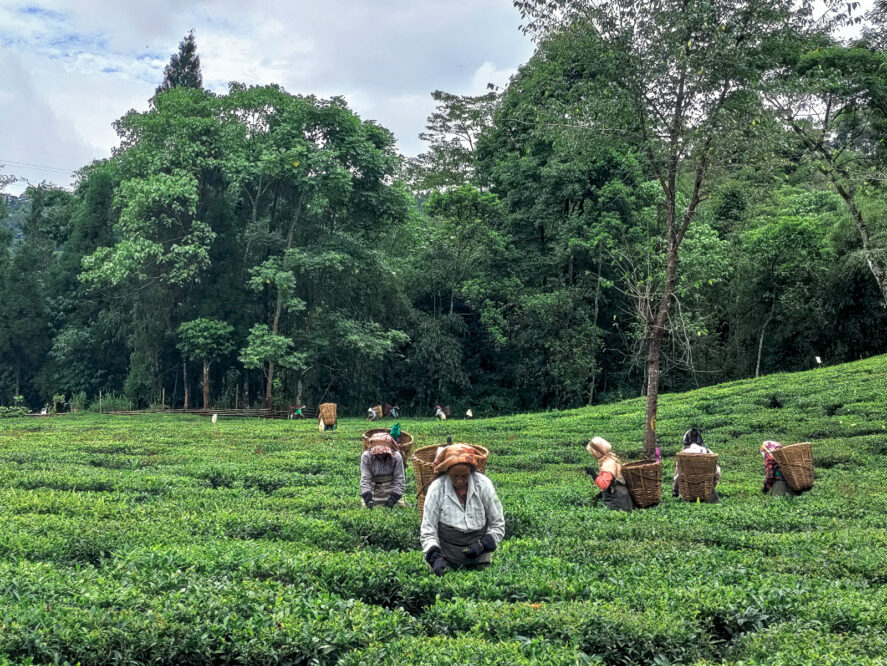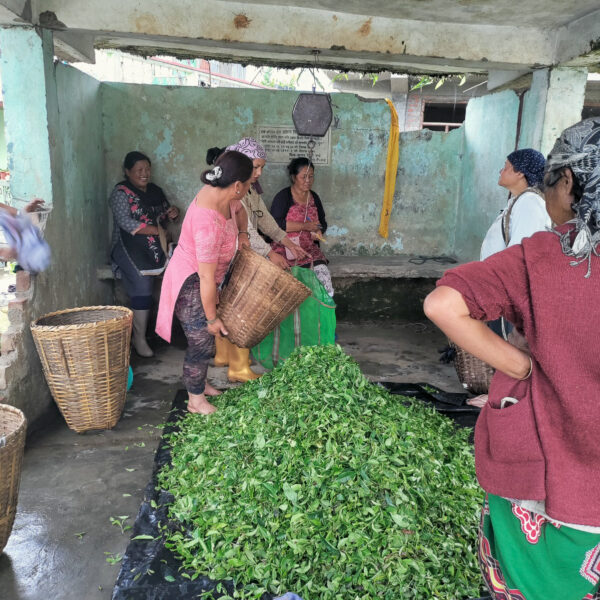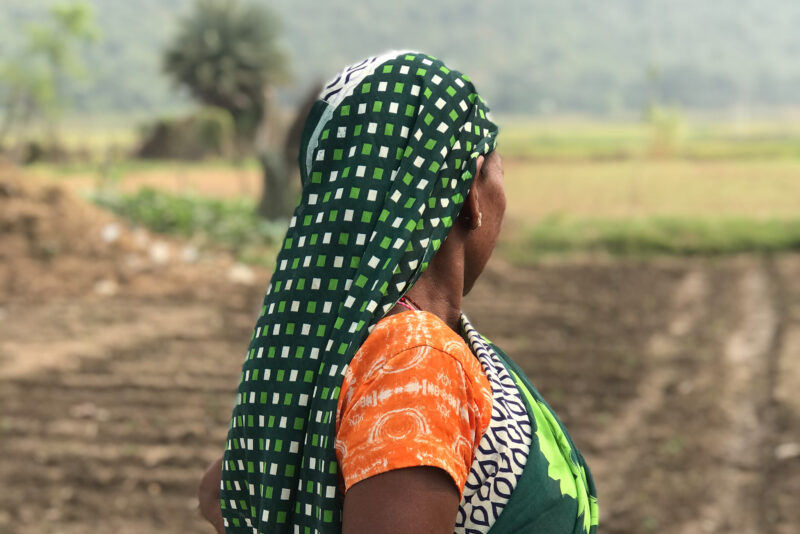Steeping in Struggle: The Plight of Tea Plantation Workers in Darjeeling

It was a beautiful rainy Tuesday morning when I was greeted by the pleasant whistle of the toy train on my way to one of the most famous tea gardens in the Darjeeling district. The tea garden supervisor had told me to arrive at 7 a.m. sharp if I wanted to meet the female workers and understand the process of plucking tea leaves.
As part of my exploratory summer fieldwork supported by the Tata-Cornell Institute for Agriculture and Nutrition (TCI), I was in a small village called Sephoydhura, located in the Darjeeling district in West Bengal. There, I spent three weeks trying to understand the conditions of tea plantation workers, the challenges they face on a daily basis, and the functioning of local institutions.
The view of the lush green tea garden under the cloudy sky was surreal. I saw women with baskets tied to their heads, wearing long gum boots and other protective gear, meticulously plucking tea leaves with one hand while carrying umbrellas with the other. I initiated a conversation with a group of workers to learn about their lives. It was shocking to hear about their daily struggles. One of them told me that they make just Rs.232 (revised rate from July 2022 onwards) per day for eight hours of intensive labor. After deducting money for the worker’s provident fund, a savings plan established by both employers and employees for retirement support, the workers take home about Rs 200, which they said is not enough to make ends meet. This forces many to work overtime for a meager Rs.13-15 per kg of tea leaves.
“With food and oil prices skyrocketing, it has become difficult to feed the family,” said one 43-year worker.
[D]ue to low wages, stringent working conditions, and a lack of alternative employment opportunities, men have started migrating to big towns and cities in the hope of better wages. “As a result, we have to juggle between our tedious and poorly paid jobs and household responsibilities,” 35-year-old plantation worker Savita said.
Kalpana, a 55-year-old who has been working on the plantation for nearly 35 years, complained about the lack of employment opportunities and a shrinking number of MNREGA jobs in the area. (The Mahatma Gandhi National Rural Employment Guarantee Act aims to increase livelihood security in rural areas by guaranteeing 100 days of wage employment per year through unskilled manual work to any household whose adults are willing to participate). She also said that bi-weekly wages deposited directly into their bank accounts hinder their ability to plan household expenses as they lack physical cash.
“I don’t know how to operate an ATM machine and these machines are located far away from home,” said another worker. “As a result, I have to rely on others to withdraw money from my account.”
I came across a worker who was singing in a melodious voice while plucking leaves. She said that she can’t stop thinking about her hardships if she doesn’t sing.
Through these interactions, I also learned that, due to low wages, stringent working conditions, and a lack of alternative employment opportunities, men have started migrating to big towns and cities in the hope of better wages. “As a result, we have to juggle between our tedious and poorly paid jobs and household responsibilities,” 35-year-old plantation worker Savita said.

Tea workers weigh the tea leaves that they collected at the end of the day. (Photo by Apurva Borar/TCI)
I visited other tea gardens around the town of Kurseong to understand if these struggles are present everywhere. In some of the gardens, women complained about the dysfunctional infirmary and childcare. In one garden, workers protested the non-payment of wages for 2 months. “We hardly earn 5,000-6,000 rupees a month and if we don’t get our salaries on time how are we supposed to fill our stomachs?” said Rupa, a mother of two children.
Other workers said that the workers needed better supplies to do their jobs. “They haven’t provided us with new pair of gloves, protective gear, and umbrella [sic] since years,” said Sangeeta. “We at least deserve that.”
After my conversations with the tea plantation workers, I was curious to know the actual state of MNREGA jobs and fund allocation for West Bengal. I visited the Gram Panchayat office under the Kurseong Development Block, where I was informed by officials that there had been no allocation of funds for the West Bengal state and that the people in West Bengal have not been paid their wages for more than a year now. The revised wage rate for MNREGA workers of Rs.223 per day, which officials said was too low given recent price inflation.
“Even if there are jobs, it’s not enough to meet the demand,” said one of the officials.
Darjeeling, known as the champagne of teas, has the most breathtaking tea gardens in the world, but behind its beauty lies the harsh reality of the tea plantation industry. Here, women face a significant disadvantage due to the double burden of low earnings and household responsibilities. Many work long hours in low-paying manual labor jobs, but also bear the majority of household and caregiving responsibilities. This leaves them with limited time and resources to improve their earning potential and overall financial stability. The lack of adequate support systems, such as affordable child care and flexible work arrangements, exacerbates this burden and further limits their ability to progress in the workforce. Addressing this double burden by implementing policies that support satisfactory remuneration and access to resources is crucial for empowering women on tea plantations.
Apurva Borar is a TCI scholar and a PhD student in the field of applied economics and management at Cornell University.
Featured image: Women collect tea leaves on a plantation in Darjeeling district in West Bengal, India. (Photo by Apurva Borar/TCI)




